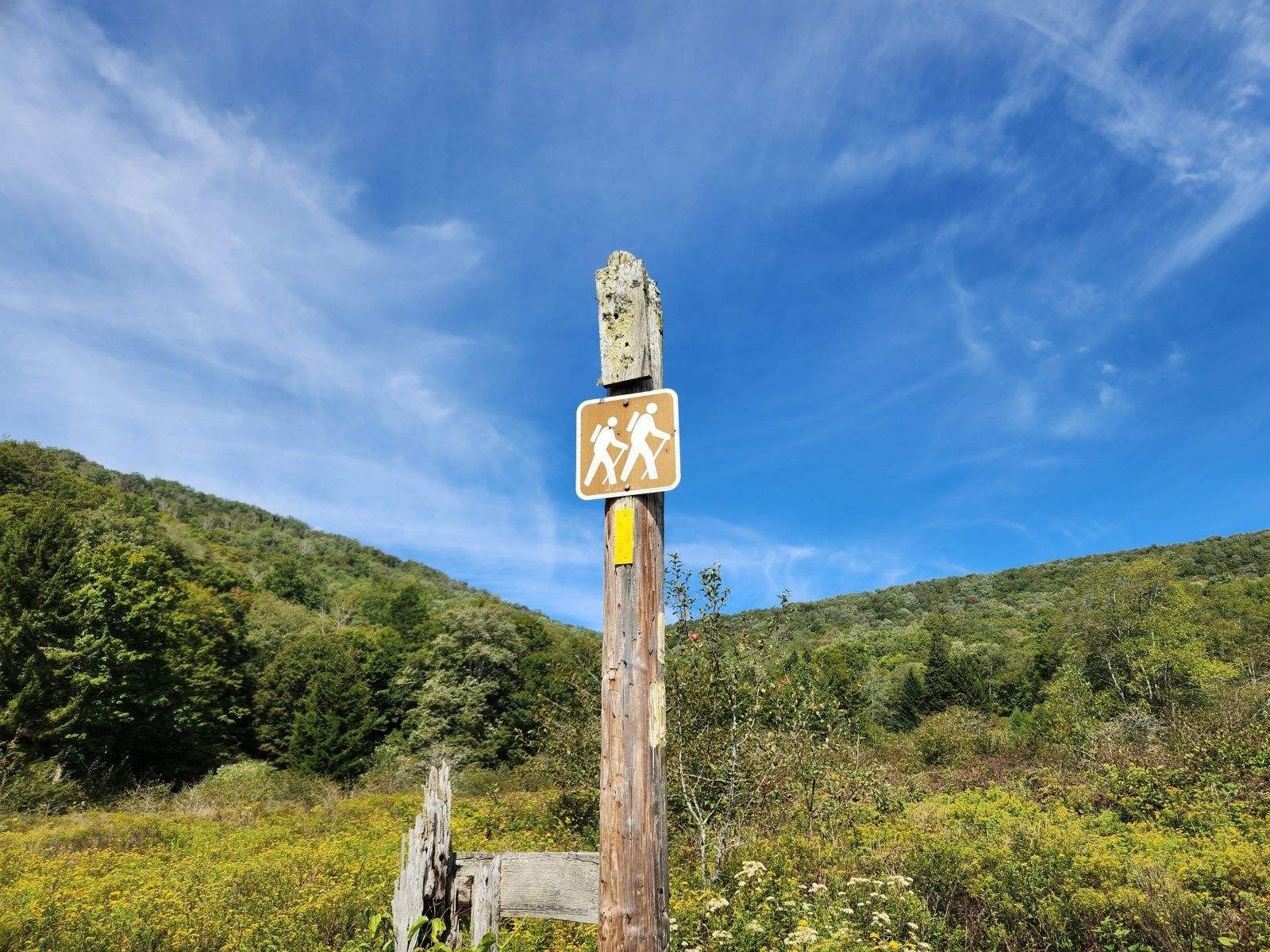In late September, Hurricane Helene brought devastating damage to the southeastern United States. This destruction affected much of the southern Appalachian Trail, forcing the closure of hundreds of miles of hiking path.
The cyclone caused some damage in West Virginia, but the state fared far better than regions further south. That is partially why Allegheny Trail Coordinator Marissa Bennett wants to spread word about the state’s longest hiking trail: to provide an alternative to hikers who were affected.
The Allegheny Trail stretches across 311 miles of the Allegheny Mountains, and celebrates its 50th anniversary this year. Reporter Jack Walker spoke with Bennett about the trail, and efforts to attract new hikers and volunteers.
This interview has been edited for length and clarity.
Walker: How did the Allegheny Trail get started?
Bennett: The Allegheny Trail was an idea started by a group of Boy Scouts in the 1950s, where they were thinking: Why can’t we have a version of the Appalachian Trail in West Virginia in the Allegheny Mountains? Some guys pulled out some maps, and in 1974 the West Virginia Scenic Trails Association came to be, and they are the stewards of the Allegheny Trail. So in 1974, we started actually digging treads for the trail.
Walker: What amenities are on the trail?
Bennett: So along the 311 miles of trail, we have a dozen hiker shelters. The trail also passes through a dozen communities and trail towns where it could be easy for one to resupply and there are some dispersed camping areas the trail goes through. The trail also follows a little bit of road and dirt path, so it’s really easy for someone to get on and off the trail if they needed to try to hitch a ride into town to resupply or just wanted to get a break off the trail for a few days.
Walker: How many people thru-hike the Allegheny Trail each year?
Bennett: Over the last four years or so, we have really started doing a lot better on record-keeping and bookkeeping. We’re trying to get a better registry system online so we know how many people are using the trail. It would be really hard to say because so many people don’t register. But we probably have at least 12 thru-hikers on the trail right now that we’re aware of, which is a pretty good number for us. A lot of people are starting to find out about it for the first time. So a lot of people that have done the Appalachian Trail or any other long distance-trails in the area have gained interest in wanting to do the Allegheny Trail.
Photo Credit: Marissa Bennett
Walker: What are you looking for in trail volunteers?
Bennett: So, we try to do trail maintenance almost every weekend. A trail coordinator will host a work event where volunteers of any experience can come out. You don’t have to have any kind of experience. We’ll show you what kind of work is needed, and we’re there to help you every step of the way. We’re just excited to get people out that want to help volunteer. You know, we’re a very small organization, and taking care of 311 miles with just a handful of people is quite a feat. So we’re always looking for volunteers.
We do have a dedicated set that’s come to almost all of our events, but we’re always trying to expand. During the summer time, some of the more remote areas of the trail get a little brushy, where the thorns and brush start to grow in. … So we try to host work events to get these areas cleared out, along with making a better tread for hikers.
If people are interested in learning how to be a sawyer, we work really closely with the United States Forest Service. They host a chainsaw class periodically, and we try to get volunteers signed up for that so we could have more sawyers on the trail. Down trees during, especially these hurricane storms we’ve had — we’ve got quite a few trees we need to get blown down, and not a lot of people certified to use a saw. But even if you weren’t interested in sawing, just having a pair of cutters and coming out and just cutting the vegetation back so it’s a comfortable trail to hike through. There’s not too many trouble areas, but there are some areas that we really need to start getting volunteers in to help keep the trail open and more desirable to use.
Walker: How do you expect Hurricane Helene to affect turnout on the trail?
Bennett: We really want to build up a good volunteer base, because we have a feeling that, because of the really bad floods in North Carolina that devastated the Appalachian Trail, we’re probably going to start seeing an influx of hikers coming off that trail, and maybe wanting to hike this trail. We’re really trying to get things cleaned up for the trail, anticipating a higher usage. We just really want to get it in really good shape.
The volunteers on the trail do the best they can now, but there’s only so many people for so many miles of trail. Just really trying to spread the word there. The Allegheny Trail is a West Virginia hidden gem. There’s a mix of walking on country roads, and you’ll be hiking along a canyon, you’ll be in the woods. It’s varied scenery.
The section coordinators and the volunteers in general are very helpful. If someone was ever in need, usually people tend to go on Facebook first, and will post a question. or if they need a ride or need off the trail for a few days. The coordinators are really helpful with connecting people together to help the hikers in need.
For more information on how to hike the Allegheny Trail, visit the trail’s website.
